Avoiding Type 2 Diabetes
Welcome to the third piece in our blood sugar special. Our first explored optimum blood sugar balance, while the second took a look at the science behind insulin resistance.
You may recall one of the risks factors of insulin resistance is Type 2 diabetes – the preventable disease we’re going to discuss today with the help of a client case study…
Diabetes: the facts
According to Diabetes UK, there are 3.2 million people in the UK diagnosed with diabetes, with an estimated 630,000 affected but unaware. By 2030, this figure is expected to rise to 4.6 million, with 90% of those affected having Type 2 diabetes.
Diabetes can cause serious long-term health problems. It’s the most common cause of visual impairment and blindness in people of working age, and it’s also responsible for most cases of kidney failure and lower limb amputation (outside of accidents).
Startling facts indeed.
The two ‘types’ of diabetes
Type 1: also referred to as ‘insulin-dependent’, Type 1 diabetes often occurs before the age of 40. This is an autoimmune condition in which the beta cells in the pancreas do not produce any insulin, requiring insulin injections for life.
Without insulin the body breaks down its own fat and muscle, which can lead to dramatic and dangerous weight loss. This may in turn lead to a condition called ‘diabetic ketoacidosis’, where the bloodstream becomes acidic and the body severely dehydrated. Therefore, a balance of blood glucose levels through diet and exercise is vital for maintaining a healthy lifestyle.
Type 2: Type 2 diabetes occurs when the beta cells in the pancreas are exhausted and overworked. The beta cells can’t produce enough insulin to function properly or they simply no longer react to the insulin, becoming ‘insulin resistant’.
The ever increasing number of adults – and now even children – getting Type 2 diabetes is due to many factors, including increasing levels of obesity, a lack of exercise, unhealthy diets and an ageing population. However, Type 2 diabetes is preventable and in most cases reversible.
You may have guessed, diet and lifestyle changes can have a dramatic influence on both your health and chance of developing or reversing Type 2 diabetes.
A Type 2 case study
I wanted to share a case study with you to illustrate just what a difference these diet and lifestyle changes can make…
Some background:
Mrs R, a 52-year-old female, was diagnosed with insulin resistance four months before coming to see me. On discovering she was insulin resistant and heading for Type 2 diabetes, she immediately and radically changed her diet and lost more than 10 kg. However, she was still insulin resistant and was so confused about what to eat that she was hardly eating anything.
On arrival, Mrs R’s routine blood glucose test showed her fasting blood sugar level was 7.5 mmol/L and up to 18 mmol/L post-prandial (the ideal level should be 3.9-5.6 mmol/L when fasting).
She was also experiencing high stress and poor sleep, alongside fuzzy-headedness and a lack of concentration. Mrs R’s immune system was also low and her wounds healed slowly. Furthermore, she suffered bloating and flatulence, night sweats, and diarrhoea. Not at all fun!
Mrs R’s goals:
- To address insulin resistance and avoid medication and diabetes
- To balance her blood sugar
- To support the digestive system
- To alleviate insomnia
- To address the hot flushes
- To establish a balanced way of eating that supports a healthy body composition and long-term health and wellbeing
Some further investigations:
We explored Mrs R’s stress symptoms with a 4 point adrenal stress test looking at her cortisol and DHEA levels over a 24-hour period. The result was adrenal fatigue.
On to food, and although Mrs R had made changes before seeing me, her diet was typically western, with (gluten-free) cereal, milk and two cups of coffee for breakfast, pasta for lunch and potatoes and meat for dinner.
It was a diet low in vegetables, water, vegetable protein and fats. In fact, Mrs R was ‘scared’ to eat fat because of putting on weight and causing further insulin resistance.
Our individualised plan
Together, we spoke about the importance of fats and proteins and the right sources of carbohydrates. We also discussed the importance of digestive health and having enough nutrient-rich foods to nourish the body.
Mrs R’s personal dietary recommendations included:
- Eating to balance blood sugar levels
- Removing all white, sweet and fluffy foods
- Increasing fibre-rich vegetables in the diet
- Reducing grains and avoiding gluten
- Introducing liver supporting foods
- Eating protein and fats with each meal
- Adequate hydration
- Alongside offering a selection of nutrient-rich meal suggestions and recipes, we discussed some lifestyle recommendations, including the need to incorporate relaxation activities and ‘me time’ and some gentle exercise, such as yoga, to reduce stress.
I also recommended specific supplements to help with blood sugar balance, and support the adrenal glands and stress response and digestion.
The results…
We continue to work together, but the results to date have been incredible! In each of our follow-up appointments over the past year Mrs R’s blood sugar readings have all between 5-6.0 mmol/L post-prandial and 4.1-4.5 mmol/L fasting.
She’s also seen significant improvement in her energy levels and concentration, a normalised bowel function (1-2 movements a day), and reduced night sweats and better restful sleep. Oh and as a bonus point, she has her libido back!
So wonderful to see how diet and lifestyle changes can reverse insulin resistance and prevent Type 2 diabetes.
Concerned you may be heading in the wrong direction yourself? There’s no reason you can’t share in such life-changing results. Do get in touch to book your consultation, and be sure to join the Health Tribe mailing list to stay up-to-date with all the latest!
We truly hope you’ve enjoyed the blood sugar series. It would be great to hear what’s helped, and if there’s anything you’d like some extra support with.
Nourishing well wishes,
Angelique
Consult your doctor or health care practitioner for any health problems, and before embarking on any new health regimes, using any supplements or before making any changes in prescribed medications or food programmes.

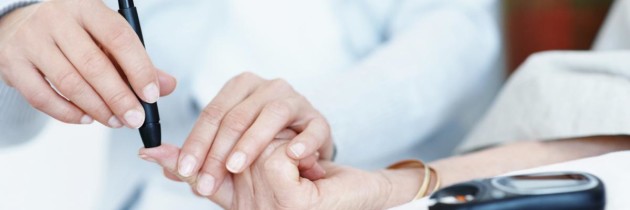
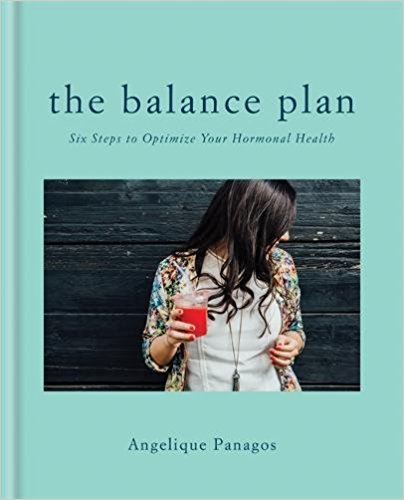



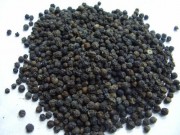


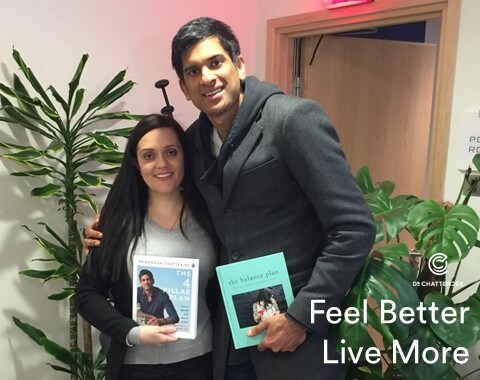
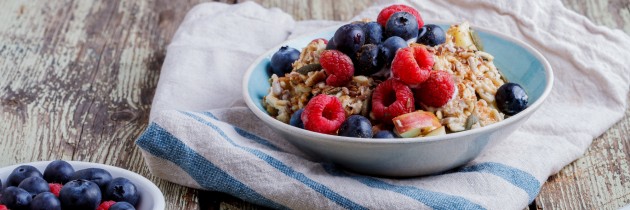
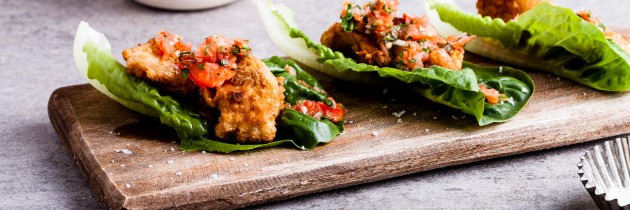
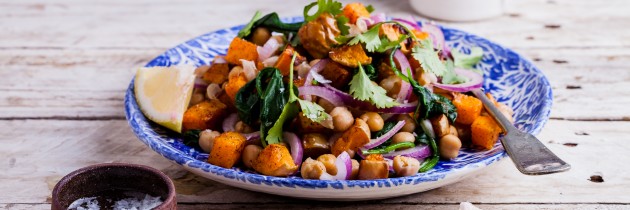

I’m an aging paraplegic, I was very active in my younger days but now my shoulder and arm joints have basically given up and I now use an electric wheelchair. The weight is creeping up and I just cant shift it. I have grilled bacon with either poached egg or scrambled egg for breakfast with two dark riy rivitas ( which is full of sugar! !) What can i replace bread with that is healthy?
I go until 5 before I have my main meal. So long as I’m full I don’t snack. I cant exercise much, only upper body. I have lost a little fat but it is very slow going. I need nutrition, no fat or sugar . Please can you put in thr right direction. I dont like spices, I’m basically a meat and vedge eater
Hi Elaine,
Thank you for getting in touch, I am sorry that you are experiencing this and I can totally relate to your frustration at the weight creeping up.
I have just had a look at the ingredients of the ryvitas online and there is no added sugar from what I can see, just the natural sugars found in all carbohydrates. Does it have sugar in the ingredients on the pack you have?
Your breakfast sounds good, though I wouldn’t recommend that you have bacon too often. You could try some sardines or salmon?
Could you add in some vegetables to your eggs to get more variation into the diet? Maybe some spinach, tomatoes, peppers and avocado.
Do you need the ryvita/bread? I find that if I add in vegetables especially avocado it fills me right up. Or you can try a different type of breakfast a couple of times a week like this one https://angeliquepanagos.com/recipe-quirky-quinoa-breakfast-porridge/
It sounds like you dont have lunch, is that correct? I think the best place for you to start is to have a look at these blogs
https://angeliquepanagos.com/finding-blood-sugar-balance/
https://angeliquepanagos.com/sustainable-weight-fat-loss-does-it-exist/
The recipes on my website are all refined sugar free please have a look
https://angeliquepanagos.com/category/recipes/
I am about to launch my 7 day sugar detox eBook which may be helpful as well. Sign up to my newsletter to find out when it is live https://angeliquepanagos.com/newsletter/
I hope this helps! Please let me know how you get on and if you add in those veggies at breakfast.
Hi Angelique! since i saw you i the program in ITV(sugar free farm) am so interested to visit and discuss my problem with you.
Therefore would like to make an appointment with you.
Please let me know, Thanks
Hello Azar,
Please email us to set up a consultation. I look forward to meeting you soon.
https://angeliquepanagos.com/contact-us